It was very difficult for me to recover musically after Nazia’s death: Zoheb Hassan
The singer also reveals details of Nazia Hassan’s biopic
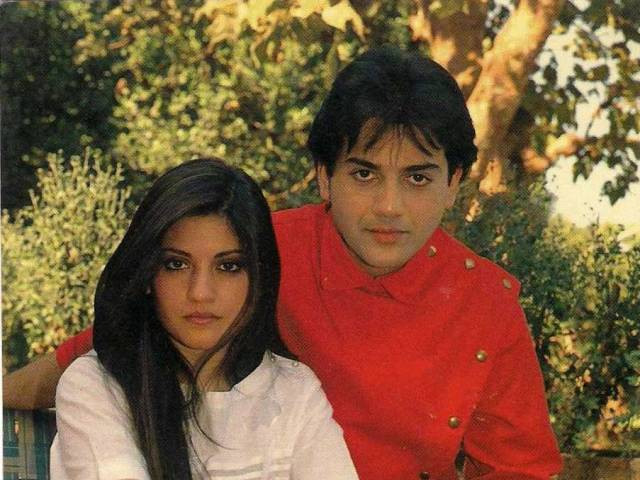
PHOTO: FILE
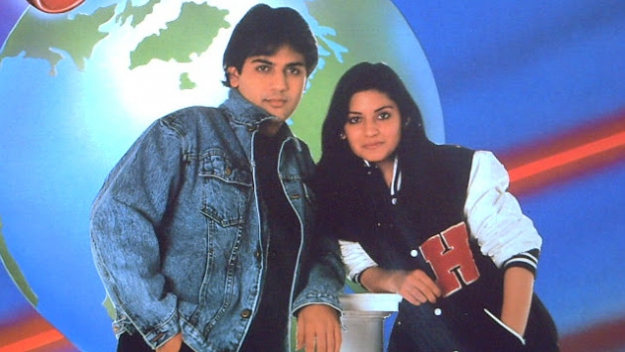 PHOTO: ADVERTISE IN PAKISTAN
PHOTO: ADVERTISE IN PAKISTANSpeaking to The Express Tribune, the 51-year-old singer revealed why he disappeared from the music scene, his family and how he feels about youngsters coming into music.
The Express Tribune (ET): Your last album Kismat was released in 2006 and now, after 11 years, you are back with a new album titled Signature. Why did you take that long a gap?
Zoheb Hassan (ZH): Nazia's death made a huge impact on me and my family. It was very difficult for us to recover after her death. A lot of people told me that I should get back to singing because that is what Nazia would have wanted - and she did. Even while she was ill and getting chemotherapy at the hospital, she would ask me if I have completed my album. I would reply back, "I haven't Nazia, you're not well. How can I complete the album?" to which she would that she was perfectly fine. She wanted to make sure that I don't get demotivated.
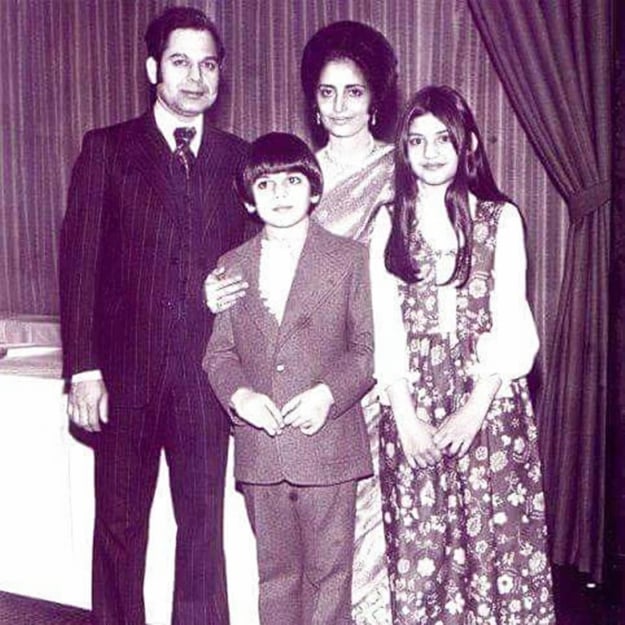 PHOTO: THE SCROLL
PHOTO: THE SCROLLNazia was soft-spoken but she was also very strong and she would place her family above everything else. The two years she was with me in London were very traumatic. I saw my sister die right in front of my eyes so it was very difficult for me to recover musically. Besides, there was Nazia's son as well and I had his responsibility along with some family businesses, so there were a lot of things happening in my life. The people of Pakistan loved me and Nazia; they supported us a lot and I'm very thankful to them. However, I just wish they would understand how difficult it was for me to continue doing music after her departure.
ET: Tell us a little about this album. What inspiration did Nazia bring to this album? What are your favourite songs?
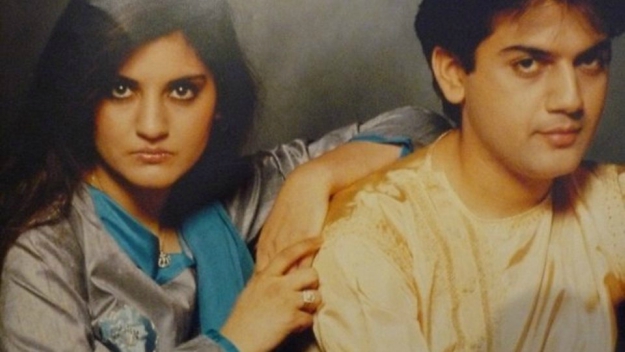 PHOTO: BBC
PHOTO: BBCZH: Nazia and I did music together; we were like a band - Nazia and Zoheb. There's a song in the album called Himat Se, which I wrote when Nazia was diagnosed with cancer. It was a duet and I wanted to sing it with her but she passed away so I had to sing it solo. Then I wrote another one called Yaadein which talks about our life and how we started this journey. However, my favourite is Kabhi Kabhi Mein Sochta Hoon.
The lyrics of that song convey that a person thinks of doing a lot of things in his life, but doesn't manage to do even 10% of those. He thinks about lost opportunities - when he was getting married or when his parents were alive – and how he would have done things differently. There’s a message in this song that life is very short and you should live every moment to the maximum. There is nothing in life that one can't do, except getting back lost time so make the most of it.
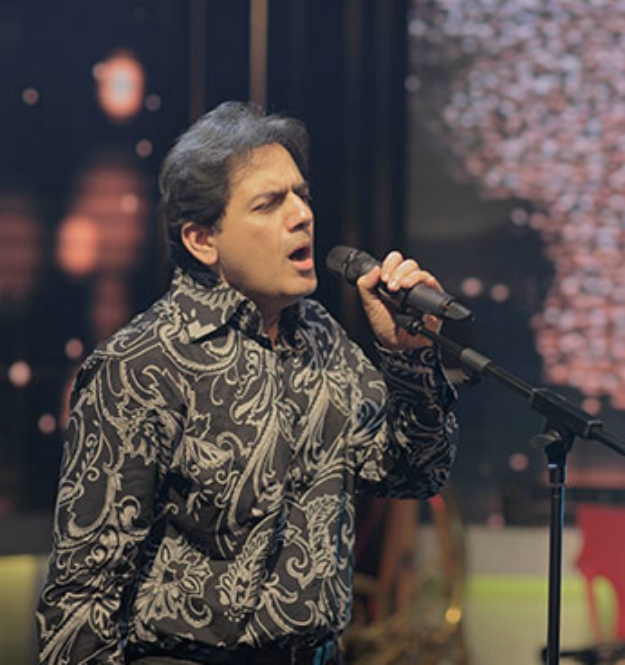 PHOTO: COKE STUDIO
PHOTO: COKE STUDIOET: Also, your music style has changed from what it was years ago. Why so?
ZH: I'm much older than when I started. As a songwriter and a musician, your taste in music changes as well. Even as a regular human being, you evolve and your perception in life changes. So naturally, as a composer I perceived music differently and hence created it differently too. I'm glad that there is a change in my music style because I don't want to do the same thing again. A lot of people ask me to recreate my old songs but I've declined those offers. I don't believe in remaking them; what's done is done. I feel that this new album is a step forward and hope that people like this different sound.
ET: What are your views on the current music situation in Pakistan? What message do you have for the youngsters who want to venture into music? What is the best way to encourage existing and upcoming musicians?
ZH: There is a lot of talent in Pakistan and there are many youngsters who have gotten into music because they feel like this is something that they can easily do. What they don't realise is that success doesn't come easy. Most of the time, they are looking for shortcuts but it doesn't work like that. It takes sincerity, commitment and a whole lot of time. My message to the youth is that they should work hard and not feel demoralised if their first song does not become a hit in one day. It's a process and you just need to be persistent.
Moreover, I feel that providing proper education to youngsters - in music and other art forms - is also very important. Music plays a huge role in image building and it's about time the government realises that. Whether it be film, theatre or music - having such art forms help to put a good image of the country. Pakistan has everything but unfortunately the image that goes across isn't very positive. I participated in Sindh Festival a couple of times and there were foreigners who would come and see what we had to offer - things like arts and crafts, music, food, flowers, etc. I distinctively remember that the first time there were only five foreigners but in the eight year of the festival, there were about 400 foreigners, including buyers and our initial audience of about 15,000 people had expanded to over three lakhs. The foreigners who attended would tell me that they didn't know Pakistan had so much to offer.
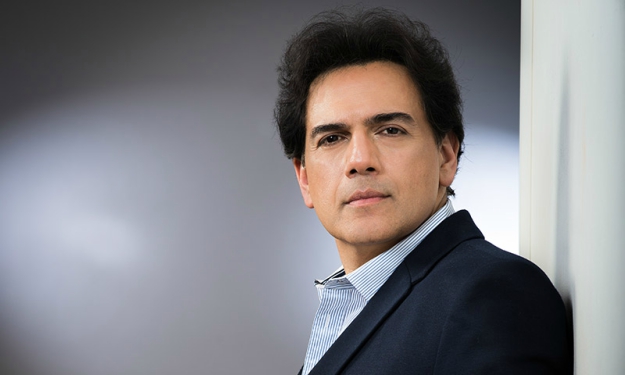 PHOTO: EMI
PHOTO: EMIWe have come to that stage where we have everything - from human talent to resources. The only thing we are lacking is how to project ourselves, which our neighbours do very well. Our people just need a window and a proper platform to prove themselves and I believe that the government should start declaring music as an actual industry. They need to spend time and money into this because investing in such cultural assets will take the country forward. Furthermore, artists need to be given importance. We only appreciate them when they die but while they are alive, no one really cares.
ET: Talking about youngsters in the music industry, are your kids planning to follow your steps and venture into this too?
ZH: I have three kids - youngest is a boy, Azmere and two daughters. Azmere is not interested in music at all. His sisters are very overpowering so whenever he tries to sing, they tell him to stop. The eldest one, Allyana has a melodious voice while Mia is amazing at playing the keyboard. She also writes beautifully. Currently, we're working on producing a song with them. But I've clearly told them that if they think that just because Zoheb Hassan is their father, things will be easy for them then they are wrong. If they have the talent and the passion, and are willing to work hard then I will support them, otherwise I will not. I will only promote them if they are dedicated and if there is honesty to their art. So far they are good, but I think I'm a little hard on them.
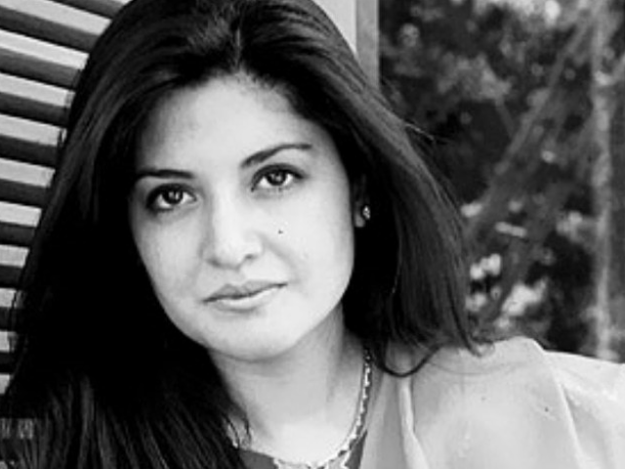 PHOTO: FILE
PHOTO: FILEET: There were rumours that there's a Nazia Hassan biopic in the works. Is this true?
ZH: A lot of people came to me saying that they want to make a film on Nazia but my family has been very reluctant. It's a very sensitive thing and Nazia is no more so she can't represent herself. However, I was approached by someone from Bollywood who assured me that they would only show the film how Nazia's family would want it to be shown. I told them that I didn't want any dance numbers or a typical Bollywood flick because our life wasn't like that. I wanted to make something that the film was a true representation of us. So yes, there is a film based on both of our lives. The story is about a brother-sister duo - Nazia and I - who start with Sohail Rana's program in Karachi that takes them to London. Once they get there, things don’t come easy and everyone tries to pull them down. But Nazia was a fighter; she would protect me and make sure that no one said anything negative to us or to Pakistan. She was very patriotic.
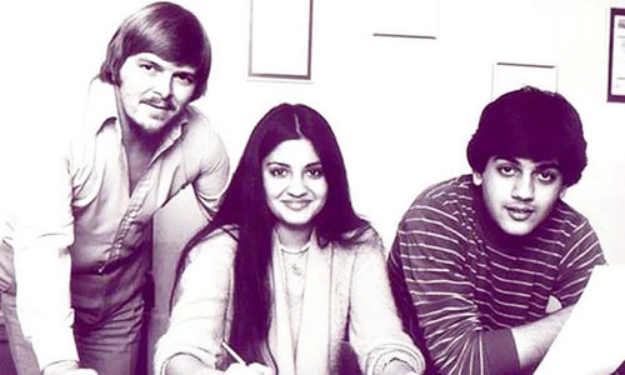 PHOTO: PAKISTAN AFFAIRS
PHOTO: PAKISTAN AFFAIRSBasically, it's about the struggle of a two siblings who grew up together and faced all the highs and lows with a backdrop of our music. Also, we wanted to film to be made from the UK but there's a consortium of a Pakistani, Indian and an international company. I have completed the script with the scriptwriter and we are currently in the casting process. A few actors from Bollywood were nominated to play my character but I told them that there has to be a Pakistani element to the film, otherwise I will not do it. So there will definitely be some Pakistani cast in the film. I am also doing a cameo in this film with the actor who plays Nazia. It'll be the end shot.

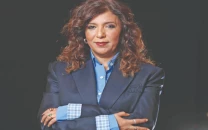
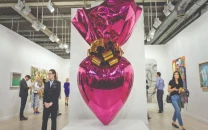
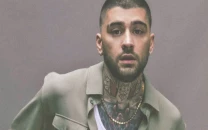
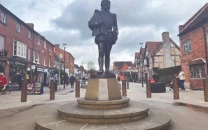
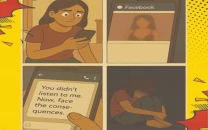
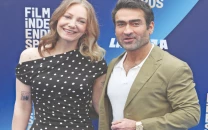












COMMENTS
Comments are moderated and generally will be posted if they are on-topic and not abusive.
For more information, please see our Comments FAQ